And this is my "Race Performance Journal" I write it for me. I share it for those who may be interested in this kind of thing. Maybe there is some nugget buried in here that might help you have a great race too! If I could tell you where to look... skim to the stuff about nutrition. That would probably be the most useful part of this novel. The Event: Three Days at the Fair is a 6 day race on a certified 1 mile loop at the Sussex County Fairgrounds. Each day, shorter races may or may not take place (48 hour, 24 hour, 12 hour, 6 hour, 50k and marathon) based upon runner's request. All results for the week are combined and winners are those who run the furthest or fastest by the end of the event. I ran the Saturday morning 6 hour. Weather: It was hot (70-80 degrees with a 63 degree average dew point). This was May and until this weekend it hasn't been very hot. For dew point, anything under 55 is comfortable, 55-65 is sticky and uncomfortable, and anything over 65 degrees is down right oppressive. So far, all my races in 2023 have been in cool and/or rainy conditions. I knew the warmth was going to be a shock. For once it didn't rain, but I wished it would have. Shoes: I was ambivalent. I wanted to wear the lightest shoes I owed since I would be taking a lot of steps. In 2019 I spent too much money on some VaporFly and then stopped racing (COVID and achilles pain). The VaporFly are light, fast, efficient, and optimal for a long race for me. Yet, I opted for my Saucony Endorphin Pros, I have been training and racing for months now in them. A little heavier but my achilles like them. Physical Health: I was feeling well, no issues, except lingering achilles soreness that I live with now. Beside the usually "scanning for weak links" which I think we all do as races near, I felt fit and strong since running a BQ at Jim Thorpe. I was ready to celebrate with a 6 hour attempt. Nutrition (Part I - more tom come later on): I started my carb-load about 36 hours out from gun time... not really on purpose. It was Nurse's Week at the hospital where I work (as a therapist) and cupcakes were everywhere. So I ate them. Friday I continued carb-loading, I hit about 330 gram of carbs the day prior. This represents a ratio of almost 6g of carbs/kg of mass for me. For long runs over 20M, I have found a ratio of 4.5g/kg of mass worked well as a carb-load. 6g/kg was more than I was used to. A lot of that came from simple sugar (152g) and fiber (70g -which a huge amount of fiber). On race day morning, I was up 4 lbs over my average morning weight. (I weigh in each morning when I am training and again after my runs to assess how much hydration I am losing so I can learn how to best take care of myself on race day). I think it is incredibly important to provide carbs and hydration to burn off during long runs. I know dehydration can drop us. By starting out 4 lbs over my average weight I had a lot of fuel to burn before depletion w0uld even being to touch me. This is important. If I started the race closer to my average weight I would have dropped from loosing too much hydration. I have learning in training that I feel awful once 3% under my average weight. This is actually right on target to what exercise science finds too. Once we drop 2% or more performance suffers. I can make it to 3%. But if I am going to running for hours, I don't want to experience that low too early. By the end of this race I was 3.5 lbs under my average morning weight. 3% lost. That's a 7.5 lb loss in 6 hours despite me: (1) eating about 1448 calories from the moment I woke up until the end of the race (I share my log) (2) drinking an outrageous amount of fluid for me (I lost track along the way. I know started the day with about 40 oz of fluid. I tolerated 30 oz of sports drink and 20 oz of water before I needed to start filling a 10 oz bottle almost each lap for the last 2 hours (about 12 laps) drinking half and pouring half on me so that makes about another at least 40 oz consumed. That totals at least 130 oz of fluid. (3) Plus a post race 12 oz protein shake. Body Composition changes from the stress: To drop 7.5 lbs after pushing in 1448 calories and 142+ oz of fluid and have great experience tells me that the carb-load and pre-race weight was incredibly necessary since it provided fluid and calories to burn through. We can only digest calories and fluid a set slow rate during the run. I could have never kept up with the demand. My race day nutrition definitely kept me moving. But do to the carb-load, my actual loss felt more like 3.5 lbs not 7.5 lbs. Carb-loading has it's critics and those who resist it. I have been an enthusiastic carb-loader since 2016 when I started negative splitting 5ks though 50 milers and running lifetime bests in everything. I was taught in grad school (Kinesiology program with Sport Performance and Sports Psych concentrations) that 1 gram of glycogen attracts 3-4g of water to it when stored. Weight goes up but that weight is all fuel and hydration. My tank is full on race day. What is the value of building a fast race car and showing up with no fuel? I come with fuel to burn even if that means I feel bloated and heavy on the line. Goal Setting: Once I start racing, realistic goal setting becomes easier. I did some calculations based upon my Jim Thorpe Marathon time and had predicted that 37-38 miles was my projected A Goal. The Course Record for women is 41 miles. I have run 43.16 miles in 6 hours in 2016 so the sounds of of setting a new CR was whispering in my ear. However I ran 43 miles when I was is in sub-3 marathon shape. I am in 3:45 marathon shape right now. 41 seemed like a Reach Goal. I didn't know if my achilles would actually hold up. So at the very least I wanted to run 27 miles. If I signed up for an ultra, I wanted to run more than a marathon. Pace Plan: My plan was to start at 8:50-9:15 pace and see where I was by 3 hours to go. My projected pace based upon Jim Thorpe 2 weeks prior was 9:24 pace but I felt I could move faster than that target because Jim Thorpe improved my fitness. I was hoping that if the weather was comfortable and I stayed in good control for the first 3 hours, then I would have some capacity to push myself during the last 3 hours - whatever that means (negative split or just try not to die). All The People: The last time I was at 3 Days was about 10 years ago. It was remarkable how so many of the same people return to this event yearly. Of course I knew Dave and Alanna were racing (we put all our stuff together), I got to chat with Steve T., Paul H., Matt M., Newton B, John B., Shamus, and Trishul... and more. In some way, I felt like I had come home. On the starting line I saw Gerald. He was there for the 6 hour so he could earn his 1500 Mile brick, He needed a marathon to do it. We took off together and got a nice fast start to get out of the crowd before we settled down. I needed to burn off some pre-race jitters and this helped. I shared my pace plan with him. I did not want to run his race but he was welcomed to run mine with me if he wanted to, It was lovely to have company for many of the early miles. I was really pleased with how " relatively easy" the first three hours felt. I was having delusions of negative splitting if I could hold myself together and attend to my needs as they arose. As mentioned, I did really well with fueling on race day. I had two days of carb-loading in me as well. I felt hopeful. I told Dave before the race "ultras are really just eating competitions with a side of sports psychology. And the eating is probably more important." When I would see him on the course, instead of saying to each other things like "You're looking great" we would say "You're are a good eater!" LOL. More on Nutrition (Part II): For this race, I was definitely a good eater! Before the race I had my giant cup of coffee, a bottle of gatorade with some BCAAs mixed in. I had a Roctane Stroopwafel on the ride up. I ate a chocolate donut because I saw them. My sports drink for this race was Roctane Energy Drink. I mixed 500 calories for the race (but consumed only 375 calories of that before I had trouble tolerating it. I brought 6 Roctane Gu and consumed 300 calories of those. I ate two ice pops. By mile 22, the heat started to impact me. I was covered in crusty salt and other electrolytes. I learned from my exercise science studies that when the body is not adapted to the heat, the first month or so we will just dump salt that we don't need due to excess sweating. Rapid sweat rate plus a high electrolyte diet means we are going to get crusty. This crusting over slows down as we adapt to the heat, sweating a little less. I am not heat adapted. I was covered in salt. My Roctane Energy Drink and the Gu have plenty of electrolytes in them, more than I am used to. As a result, I was over- salted and my body was dumping it hard. My skin felt so uncomfortable. Water: I couldn't tolerate my last bottle of Energy drink. I was craving plain water. I drank the water I brought with me. I had to use some to get the salt off my face and my arms. I was starting to get frustrated from the crustiness on me. I grabbed my last bottle of water just before Mile 28. I didn't anticipate needing to drink as much as I actually did in this race. I didn't anticipate needing to have water to douse myself. I was hoping for rain. It didn't come. Music: Maybe music would help. I never race with music but I have been training with it. I had my headphones and my phone. I needed 90 seconds of so to fumble with turning on my phone, finding my headphones, loosing an ear bud, freaking out, realizing I had my tiny bluetooth speaker that I use when I train with Dave, and then getting myself organized with music.which helped ... but I was overheating and about to finish my last bottle of water soon. HELP: As I approached Mile 28, I could feel some worry starting to set in. People were cheering for me... "You're doing great!"... "Looking good"... "Keep it up"... and all I could think to myself is "I. NEED. HELP!" Afraid To Stop: I could have used a crew but I didn't have one. I was sure that If I stopped to fill a water bottle from the cooler my whole body would just shut down and refuse to get back up to speed. It took all I had in me to not have the wheels fall off when I got my music. I knew stopping again would be too risky. I see Dave at the picnic tables... he is too far away to hear me and I wasn't going to stop to explain myself. I have a bottle half empty in my pocket. I am trying to convince myself with self talk: "You will be fine. You will fill the bottle and get back to work. You will feel better for it. This isn't a choice. You need water." I see Alanna. I call out to her desperately "Can you help me?" I knew she racing the 6 hour but said she was there for a long run and was planing to run/walk the second half her her race once she hit her long run goal. I knew this wasn't a goal race for her and hoped she might have the ability to help. She asked what I needed. While still moving I call out "Can you grab my empty bottles, fill them with water and leave them on the table. I have some water for now, but I will run out and I don't think I can stop." Alanna saved my race. Our stuff was together, She knew what I needed. She was able to get it done. I felt rejuvenated when I saw those two bottles filled. I felt hopeful. I was able to douse myself to cool me down, to get the salt off, to feel more comfortable and I kept on moving. Feeling Better, music playing, water flowing: I knew I had time for 39 miles if I dug deep and pushed hard. But I made a decision at 34 miles to start filling my own bottles. I stopped each lap for a few seconds to refill, dumped some water on me and then ran the rest of the lap. This small carrot of a refill break was motivating, but I wan't going to get as many miles as possible with this short stop. Achieving My Goal: With 30 minutes left to race, I made a decision that leaves me feeling a bit ambivalent... like now I have some unfinished business at this race. I had time to push hard to possibly get 39 miles if I wanted it bad enough... or I could add an extra walk on the back stretch and be happy with 38 miles. This race was supposed to be my season-closer celebration. I have fall marathons on deck. So far my achilles was holding up. I had gotten more than I felt I deserved at this point. I was afraid picking up the pace would hurt me. I could feel my body getting depleted. I was at least 4-5 miles ahead of the second place female. I knew I was also ahead of Gerald, the 1st place male and he wasn't racing me today.. I knew the CR was 41 which was out of reach. I believed that 38 would get me on the leaderboard for top female performance for all time. So I decided that I had already achieved what I came for and played it safe for the last 3 miles of the race. But all this does is make me want to race it again, make it a goal race, and aim to not leave any miles on the table.
Many of the people who know best got to witness one of the best 6 hours races of my life. Not because it was the furthest I ran, but rather because it was a glorious comeback for me.
0 Comments
Woke up at 3:30 am. Drove 2 hours directly into a storm. Ran my first Marathon in 3 years... The Marathon Dilemma: Pick Your Poison. A unique world of discomfort exists between Mile 21 and the finish when the heart is fully invested in seeing how fast the body go. It is odd how “10 miles to go” can somehow feel more manageable than “5 miles to go”. Marathons are like that. They challenge reality. This is why I love them. Running marathons reminds me that I am more capable than I realize. It has been years since I have experienced "Mile 21+." This is where I find myself in a battle between two equally awful options: (1) The Physical Distress of a potential medical crisis that is completely avoidable if I just slow down. As the miles accumulate, each seems longer than the one before. The distress mounts while relief is just a matter of me deciding to back off the gas. (2) The Psychological Distress of a self-disappointment that will manifest promptly the next morning. I will feel awful for choosing to back down when so close to the finish (forgetting all about the physical distress). This emotional disappointment wont likely get erased until the next time I find myself at 21+ of a goal race and have the same decision to make. The question is only how bad do I want it. And sometimes the answer is "Not this bad"... and something the answer is "More than this race could ever hurt me". And both answers can be the correct answer. The hinge for me is understanding my WHY. I have missed feeling like myself for years now. My "WHY" is really powerful right now. I think about things when racing about performance, nutrition, sports psychology. I share with these thoughts with those I coach. I want to add those thoughts here, too. Realistic Goal Setting. One peak performance mindset technique I use to try to optimize my performance if possible is Realistic Goal Setting. If I set myself up to fail then I wont have the chance to make any decisions at M21+. Running myself into the ground before I get to the hard part doesn't do anything for me. So regardless of what I wish I could run, or what I have done in the past. I goal set using current information about what I have done lately not hopes and dreams of what the best outcome might look like. This is harder than it sounds. The Ego is loud and unwise sometimes. Based upon my recent training and recent half marathon times, I felt I had a realistic chance to BQ with a 5 minute buffer. I need a 3:50 to qualify for Boston. It became important to me to chase the BQ at my first marathon after years of not racing them. But it was more important for me to execute the race in a controlled way. I wasn't interested in a crash and burn. I didn't want to walk. I didn't want to create unnecessary suffering for myself by going out over my head and then feeling shocked when I started to drown. I wanted to work hard but also smart. Tiered Goals. Another Peak Performance Technique I try to use when I am racing for a goal is Tiered Goals. But I do it differently than most people I know. Rather than identifying an A, B, and C goal with A being the hardest goal, B being the achievable goal, and C the easily achievable, I only set two goals: The "A" Goal. This is my target for the race and something that should be achievable while still a significant accomplishment. This is the purpose of the work. The "Reach": I leave open the option to chase a Reach Goal in the second half of the race. A lot of people call this their A Goal but I don't. I want to set my pace plan up so that I can achieve my "A Goal" from the start. I don't chase my Reach goal from the start. The Reach Goal will happen with a negative split if everything is going well. The Reach Goal will not happen for me if I chase it from the gun. I know this. The A Goal usually get lost that way as well. By setting myself up to achieve the A Goal, I often end up achieving more Reaches than I thought possible. When I go home, I get to feel proud of my work whether I hit my A Goal or my Reach. I want more chances to celebrate - not less. It feels awful for me to think of accomplishing something amazing (the A Goal) but feeling like crap because it wasn't as amazing as I wished it could have been. I think it is important to mention that not all my races are Goal Races. I race a lot. Often those races are for growth and development. I practice skills. I test fuel. I check in on pacing. I dial in race day routines. I challenge myself to achieve smaller goals within the race. Sometimes it is just be social. Not every race has to be about goal acquisition for me. But this marathon was a Goal Race. My 'A Goal" was to BQ on my first race back. My "Reach Goal" was to break 3:40. The Pace Plan: 8:45 pace through 14M then negative split to 3:45 (8:35 pace) or faster. Jim Thorpe has an unusual rolling start but it makes sense. The trail is narrow and the first 2 mile section is an out-and-back. To spread people out the start time was not fixed since the race was chipped time. If you wanted to run with a pace group you would start at 8:00 am but the first runners could start as early as 7:15 am. This made the race feel like a long training run. I appreciated that. Dave and I started just ahead of the 4:00 pace group with a plan to chase down the 3:45 group by the end if possible. If we did that we could come in under 3:45. We hit our goal pace through the first 14 (8:45 average) but it was little sloppy. I needed to stop at the port-o-potty at mile 2 because I drank a lot on the very hot train ride to the start. Dave had to stop to get a rock out of his shoe around mile 5 or so and once more to use the bathroom. Trying to average 8:45 pace by M14 was more work than it needed to be with all the short stops for self-care issues. At Mile 14, with 12 to go we dropped the pace and it felt like it was going to be an amazing day! We were easily running low 8:00s but my gut told me it was too soon for that speed. I reigned myself back in to 8:20s.. At my 16, I still felt strong and fluid. 10 to go really didn't feel outrageous. Sub-3:45 was within reach. But it was still early. Then the rain and wind picked up as we approached 20M (as if the last 10k of a marathon isn’t already hard enough). My wheels started to fall off. The puddles were shin deep. My clothes were soaked. My feet were numb. My hands were numb. I was cold and wet and using a lot more energy to regulate my body temperature than I had to spare. I definitely felt the WALL. I had consumed all my Gu by Mile 21. I really wish I had one more. Rookie Mistake! I am out of practice and brought enough fuel to run a low 3 hours (like I used to) without thinking about how I long would be out there. For 3:45, I would need one more Gu to keep me feeling peppy. If there was Gatorade on the course I would have been fine with calories, but they had UCAN and I don't drink that. Sometimes 100 calories can make a HUGE difference and today was one of those days. As my body and mind struggles to hold on, having someone at my side literally working through the weather with me who really wanted to see me accomplish this goal for me as much as I did made was a nice. I tethered my energy to his as he was just a few strides in front of me and I just let running happen. HIs presence helped me hold on when it got hard. I am grateful. It ain’t over 'til it’s over. The amount of happiness I feel when a race is over is almost always directly related to how well I navigated through the struggle. The struggle will never feel wonderful in the moment.. Sure, there is "good pain" which for me only happens when the reward and the suffering are happening at the same time (like in the last few miles of a race when I know I am "doing it" and I will achieve my goal if I can just hold on...). But more often there are moments in the middle of race or at 21+M to go when it is just hard and there is growing doubt. This is when that unwise voice that acts like it can predict the future but knows nothing at all starts whispering "you can't do this..." Silencing that voice is a skill that needs to be practiced. This is the same unwise voice that at the start of a race whispers "Go out REALLY hard...you got this! You will be fine!" when really there is no reason to go out really hard. The opportunity to practice enduring in the face of adversity and to practice silencing that voice is what makes racing special to me. This is a transferrable skill to other areas of life. Some Mindset Techniques I use to silence that inner unwise voice is to (1) keep my Mind + Body in the same place at the same time (do not think about future parts of the race) and (2) Stick to the plan I made before I was actually in the event (That plan was based on what I did lately to identify a realistic A Goal and Reach Goal). Then I try my best to stay the course and not let unwise "whispers" distract me. When my pace slowed it was just a part of the narrative that was being created. This moment is not my forever. Sure It felt awful at the time to fade, but I needed to not let my need to regroup effect my ability focus on what I was doing well. I take pride in understanding peak performance strategies. But let's be real, knowing mindset techniques and being able to apply them in the moment when we need them most are two different things. I know the only way to get good at Mindset Skills is to put myself in challenging situation so I can practice them over and over. This is why I race a lot when I can. Mile 24 aid station. I wanted so badly for that table to have gels on them. Just the taste of sugar would have given me such a mental boost. As I passed the table there were none. I don't know why I didn't grab a cup of UCAN drink. I just have this sense that I would hate it. I had a really bad experience with HEED in the past that made me feel like I would puke once I drank it. A little packet of sugar seemed like all I needed. But there were none. I didn't dwell on this disappointment. I moved on to what I could control and what was working for me. I took a moment to regroup physically and mentally. I gathered my energy. There wasn't much more to go. I channeled what I could into finishing strong. We picked up the pace. And by the time we reached the finish line, we managed to do exactly what we set out to do! A Goal accomplished. Everyone should be so lucky to have a friend who cares as much as about your goals and dreams as you do. A friend who is ready, willing, and able to get in the trenches with you and do the work along side you. A friend who understands the physical and mental skills it takes to unlock full potential. When it comes to marathon training, Dave is that friend for me. |
Categories
All
Shannon McGinn, JD, MS, MA, EDS, NBC-HWC, ATR-BC, LPAT.
|
Copyright © 2014

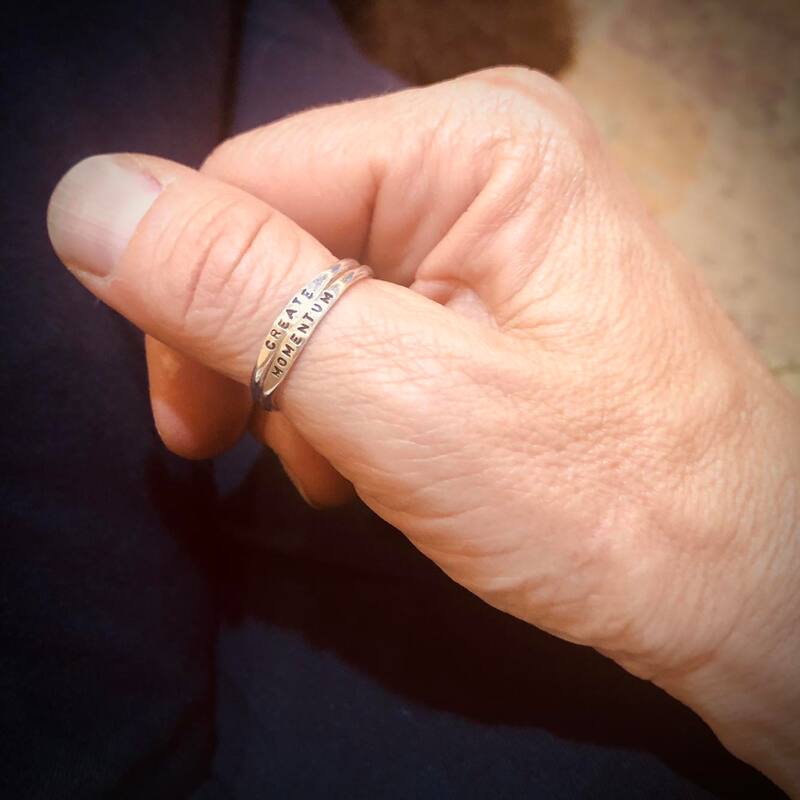
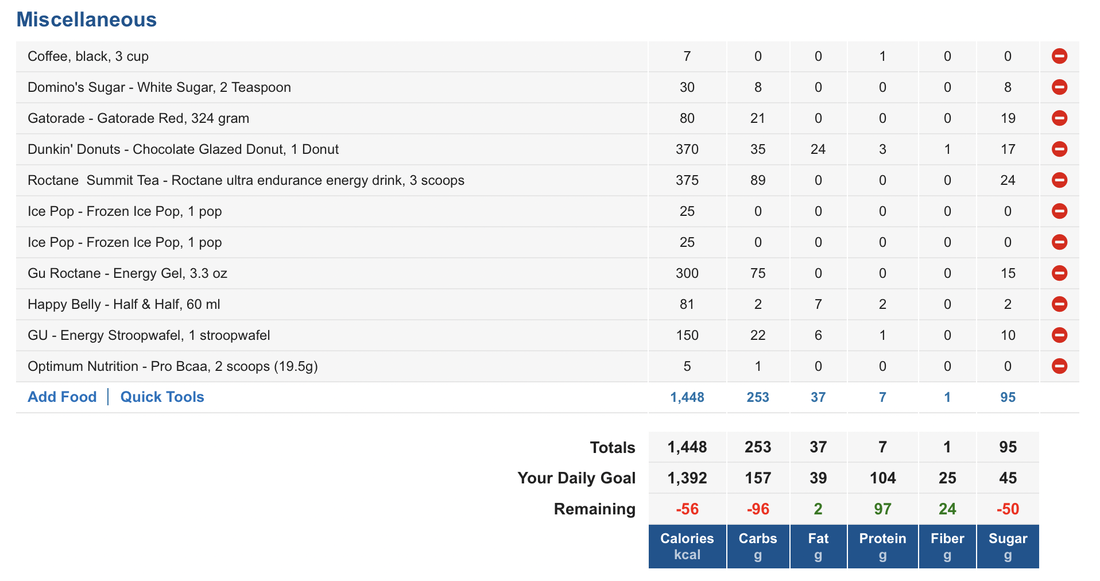
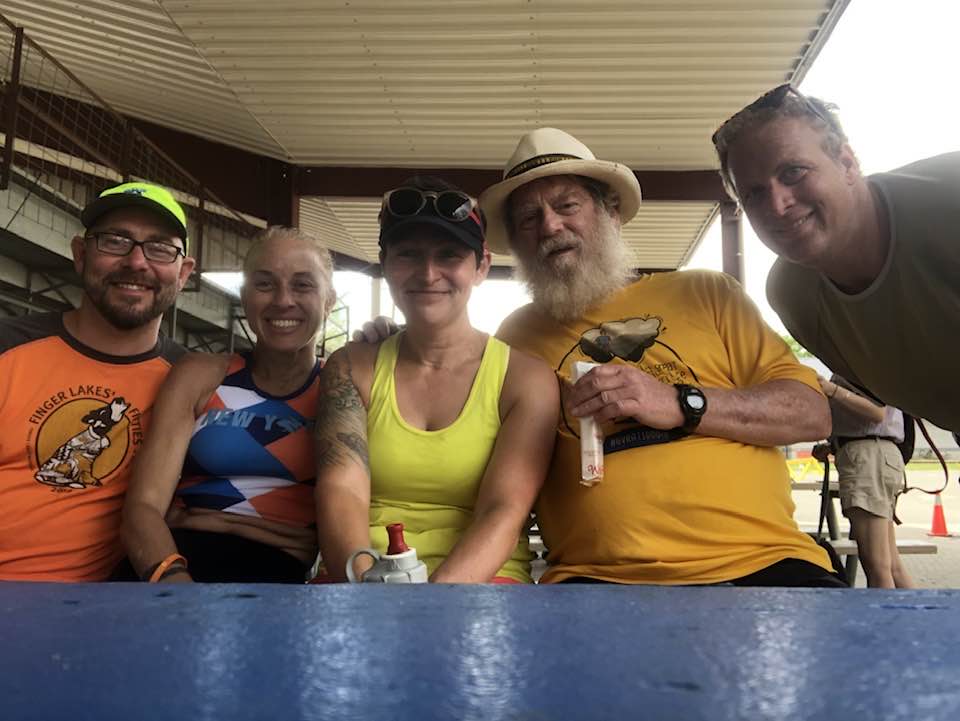
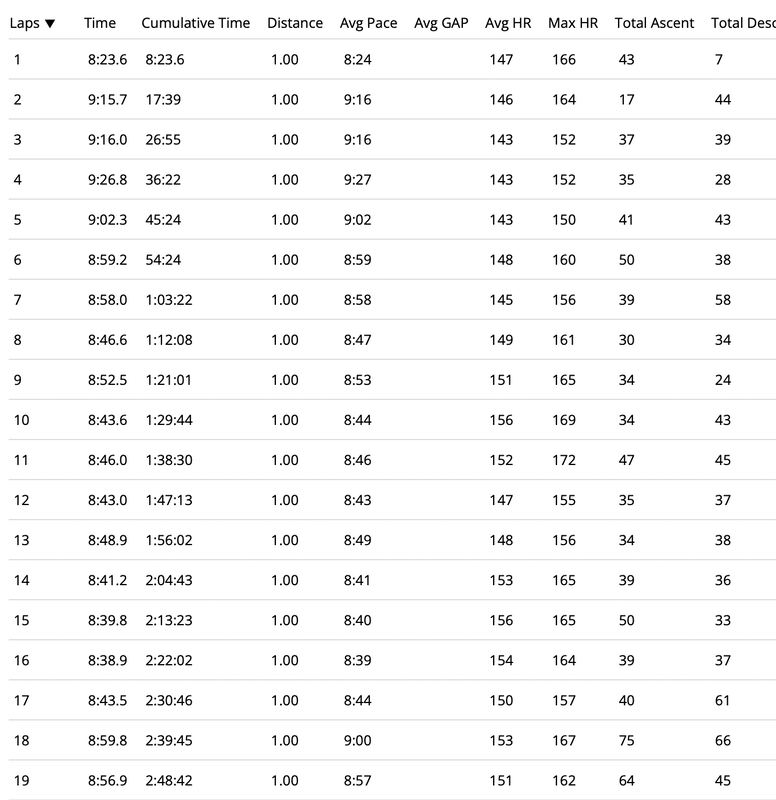
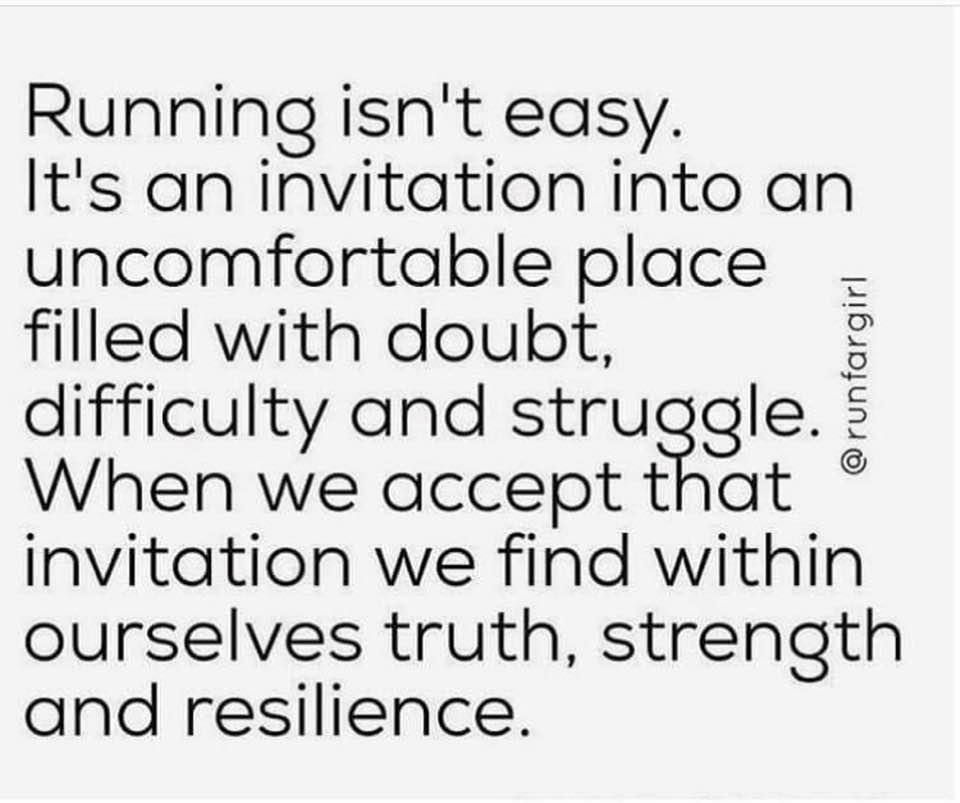
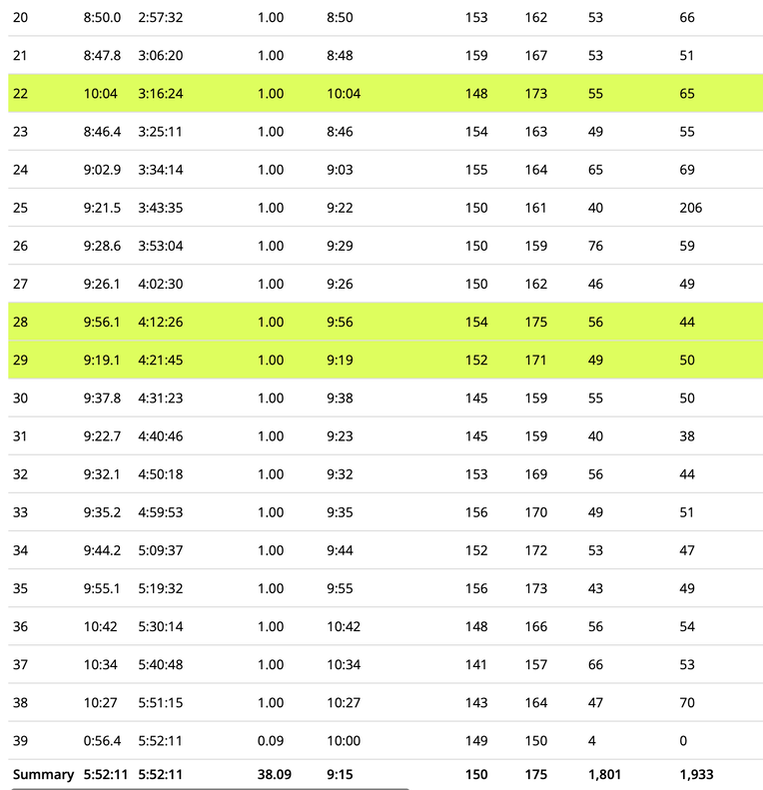
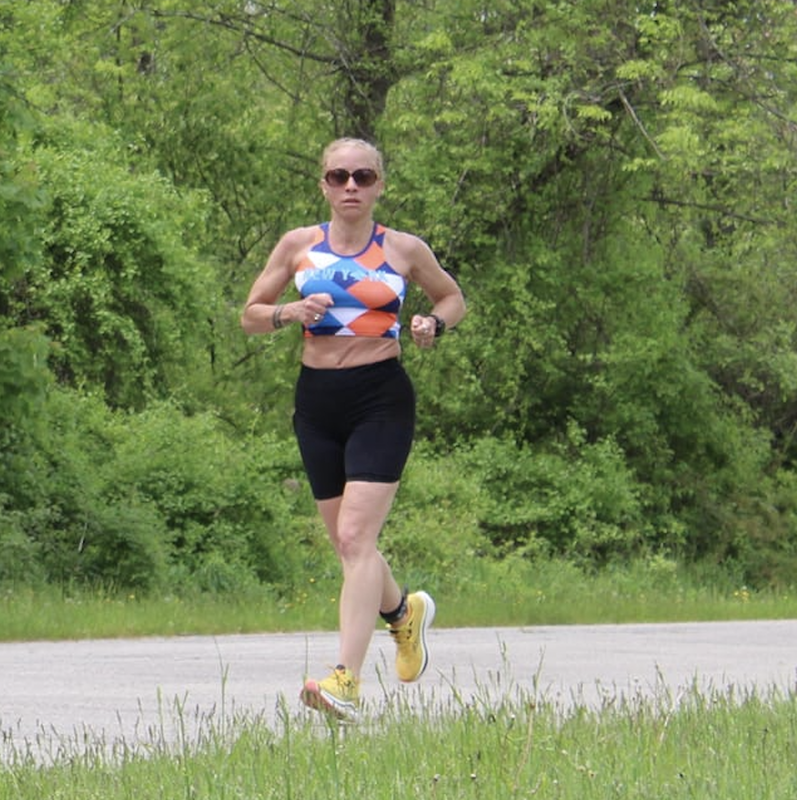
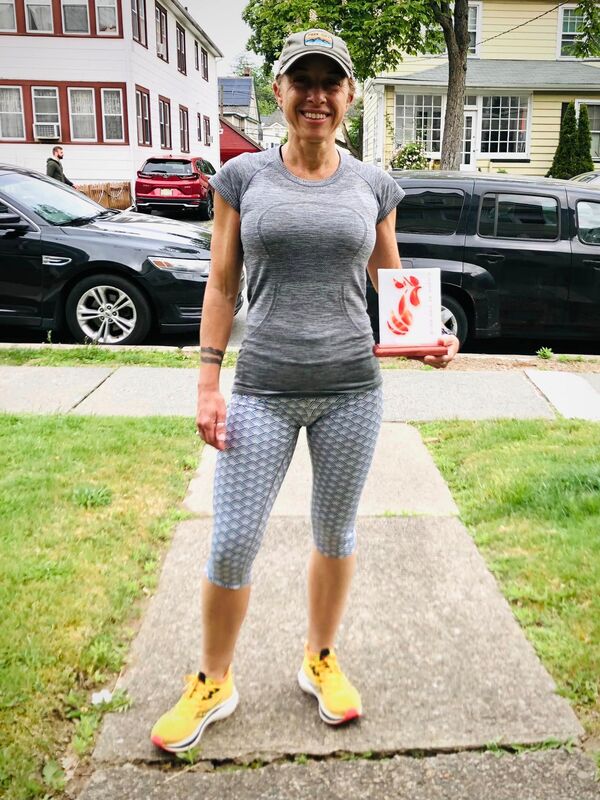
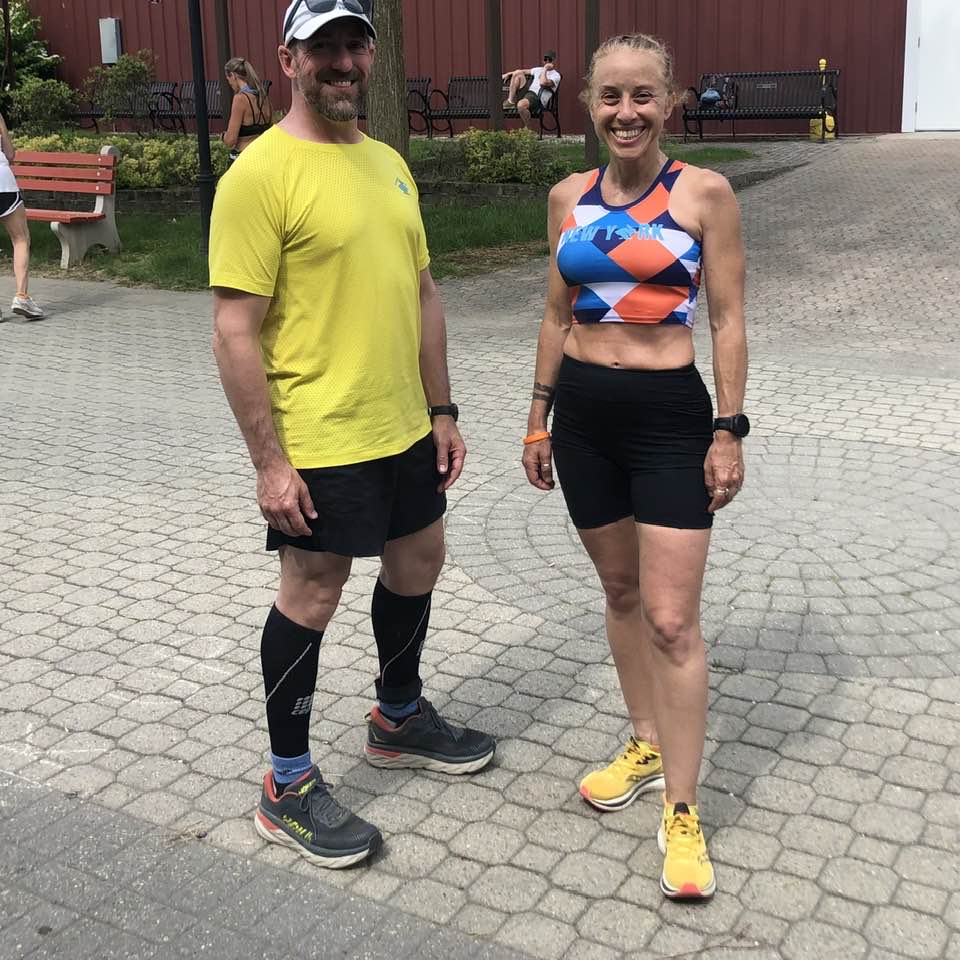
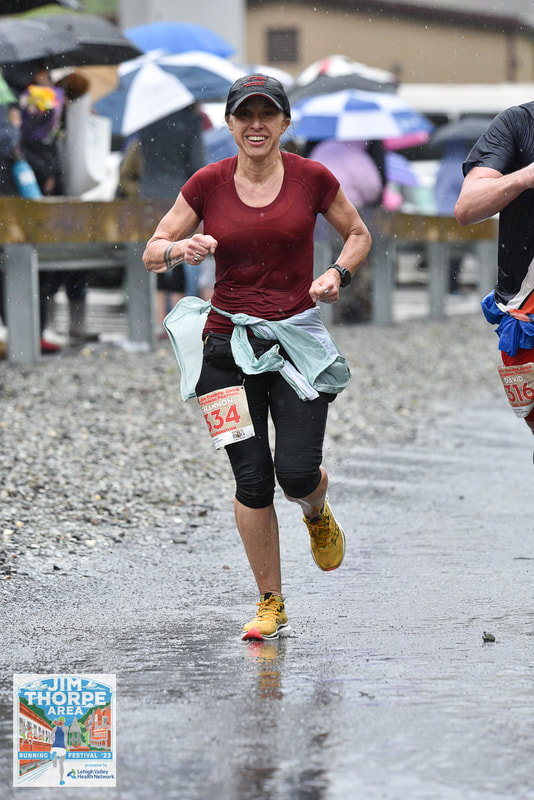
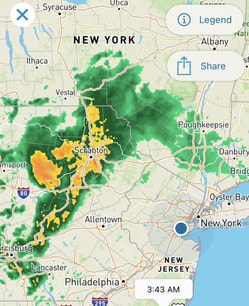
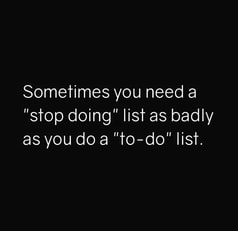
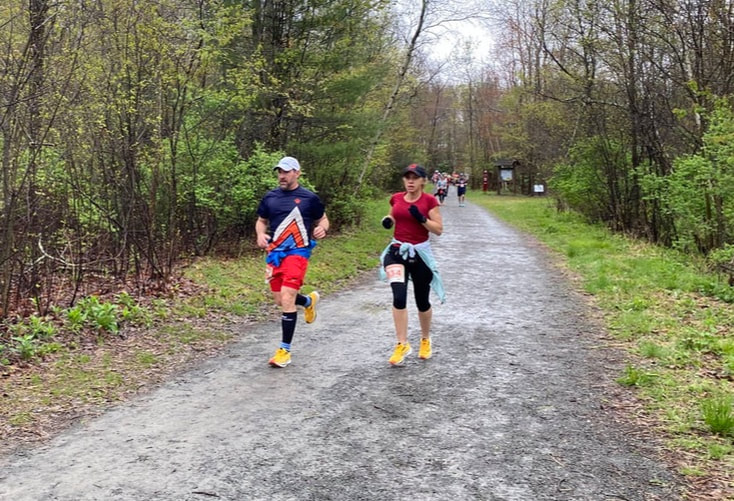
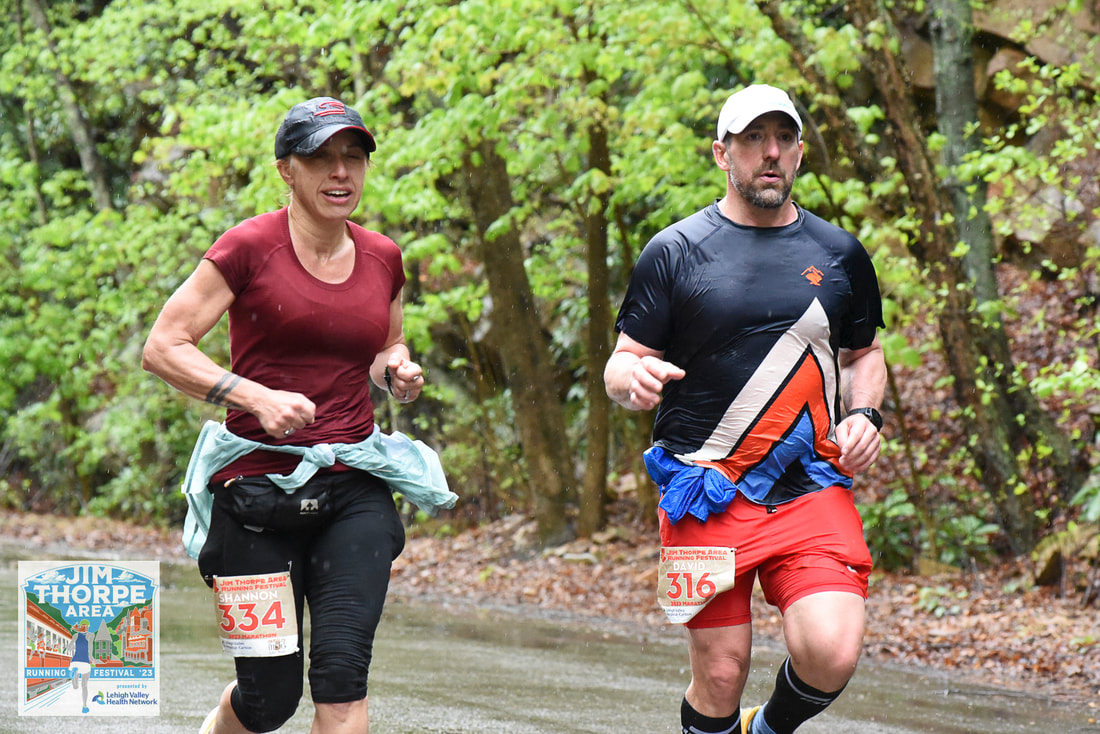
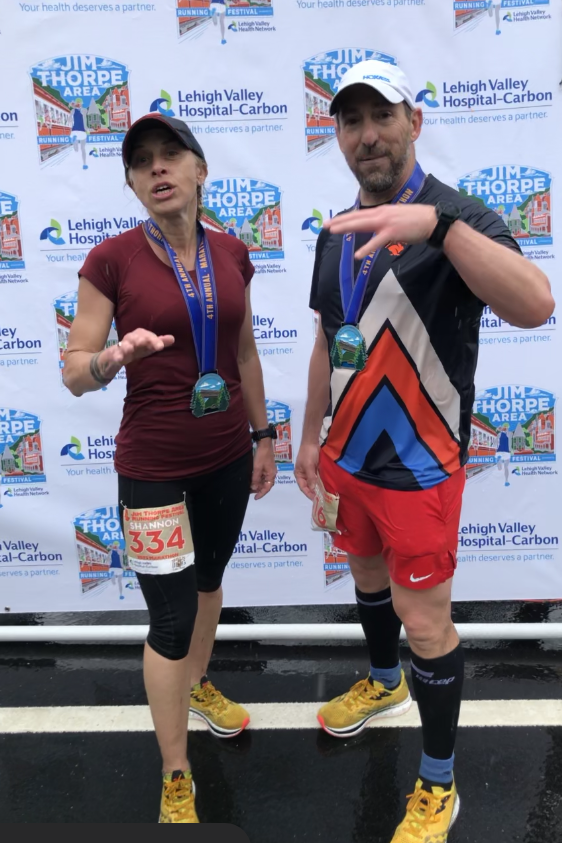
 RSS Feed
RSS Feed